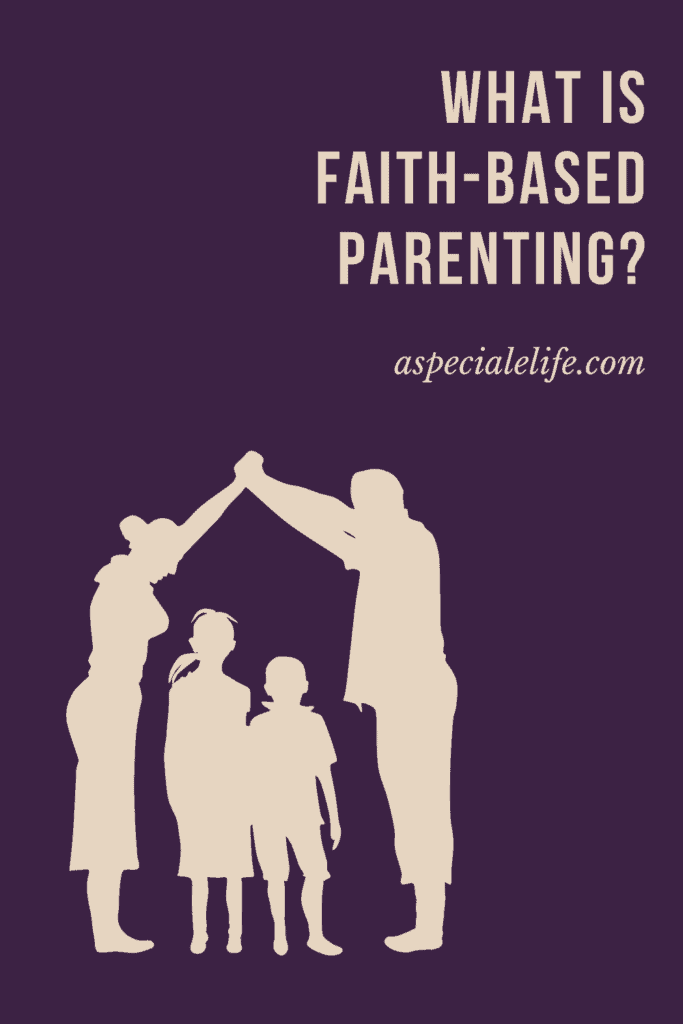I heard a sermon a couple of weeks ago on parenting. I’ve been in church my entire life and I can’t remember a single time in which I heard an entire sermon on raising kids. I’ve read Christian books, I’ve read the Bible, I’ve listened to podcasts and watched videos and downloaded apps. Faith-based parenting is definitely an in-demand topic. So, why don’t we talk about it more in church?
Christians have been raising children for thousands of years. And yet, there’s still new teachings and new books and new theories. Why? The modern world has technology that is different from our ancestors. There are so many things that are the same, but so many things that have changed. Luckily for us, the Bible is forever. Our circumstances might change, but the Word is steady. Interpreting it to match our lives is something numerous scholars and Christians aim to do. One interpretation is explained in Grace Based Parenting.

Page Contents
What is Grace Based Parenting?
Grace Based Parenting is a book by Dr. Tim Kimmel that has been extremely popular with Christian parents for several years. Although I have not yet read this book, reviews state that this is the way that Jesus intended for us to parent our children – in the same way that God treats us. Despite never having read this book, I mention it because of the four parenting models discussed in it.
- Fear-Based
- Evangelical Behavior Modification
- Image Control
- High Control
These four main parenting styles are broad enough to cover most Christian parents’ models of parenting. Let’s dig into each style a bit and see how (or if) these might be faith-based parenting.
Fear-Based Parenting
The fear-based parenting model describes the parents that consider all outside influences to be a danger to their children. This includes online influences, television, music, and the real world. Children that are raised in a fear-based parenting model will likely fear anything different from themselves, even as they grow into adults.
While it may be smart to be wary of some situations, disliking something that is different from you is not at all faith-based.
Evangelical Behavior Modification
This parenting style is based on the environment. A good, Christian environment should result in a perfect child, right? No! All people, even children, sin. You don’t have to teach your child to lie, but it is inevitable that they will some day. We, as people, are meant to be rebellious. A good environment cannot weed out human nature.
While creating a good and Christian environment can be great, it will not prevent your child from making mistakes. It will not guarantee that your child will become a Christian themselves. So, though the environment in which a child is raised is important, it cannot be everything. This is not faith-based, but forced.
Image Control
For the social media lovers out there, you probably don’t need much explanation for this style. Parents that want to appear perfect fall under image control. The kids are perfectly dressed, photos show everyone smiling and happy all the time, and the family seems flawless. We all know there is no such thing. Every family and every person has their own set of problems.
A child raised by parents leaning on the image control model is likely a child that will sneak around behind mom and dad’s back. They want to have the freedom to make mistakes and have experiences without ruining the family image. Obviously, faking perfection is far from faith-based parenting.
High Control
High control parenting is the abuse of authority. They are overbearing, have impossible standards, and trust is almost non-existant. Unfortunately, this form of parenting is the most common of the four discussed in Christian households. This parenting style is damaging in childhood and well into adulthood. Some children raised in this way never fully recover from it. Damaging our children in any way could never be faith-based.
When Parenting Takes Presedence
When you place the importance of parenting over the importance of being a Christ follower, you could easily fall into a parenting model that goes against Christ’s wishes. Of course, parenting should be an incredibly important component of your life. It must be if you have children. However, trying to raise perfect children will only bring disappointment. We must first be Christians before we can be the parents that Christ wants us to be.
Kids are not perfect. Parents are not perfect. Remembering these facts are crucial to faith-based parenting. Your kids are going to inevitably make horrible decisions that make you want to scream, “What were you thinking?!” Unfortunately, parents are unable to make the right decisions for their children. Parents might think that they never messed up that bad as a kid. But you did. You might weigh it differently because it was you and not your child, but you messed up just as much. Ignoring that fact will only cause damage to your relationship.
So, be kind. Remember that forgiveness is necessary.

What Does the Bible Say on Parenting?
In Ephesians chapter 6, Paul talked about loving and caring for others. The verses one through four say:
Children, obey your parents in the Lord, for this is right. “Honor your father and mother”—which is the first commandment with a promise— “so that it may go well with you and that you may enjoy long life on the earth.” Fathers, do not exasperate your children; instead, bring them up in the training and instruction of the Lord.
Children must obey and honor. The Bible (and parents) expect children to always obey. Honor is expected of children young and old. We, as parents should aim to raise our children into independent adults.
We should bring them up in training and instruction. This means we should teach our children two things: what is right and what is valued. This is faith-based parenting.
How Do You Integrate Faith into Family Life?
Forcing your children to participate in church events, to read a daily devotional, or something of the sort falls under evangelical behavior modification parenting. A forced activity will rarely become something that your kids want to do willingly. How do you get your family willingly involved in faith-based activities?
With younger kids, it can be fairly easy to integrate faith into family life. Reading Bible stories, listening to Christian music, doing faith-based crafts, and similar activities are great ways to get everyone involved. When kids get a bit older, they may become less and less interested in these kinds of activities. Instead, use what those kids enjoy. Sports? Try a church basketball league. Music? A Christian concert similar to their preferred genre. Older children can become interested in, involved in, and surrounded by faith based activities in tons of ways!
Faith-based parenting can be summed up in a single sentence, even if it may be impossible: Parent children the way God parents us.
You can see the sermon that this post was based on here:
What do you do to integrate faith into your family life? Do you find yourself leaning toward a certain parenting model? Let’s chat about it in the comments!

